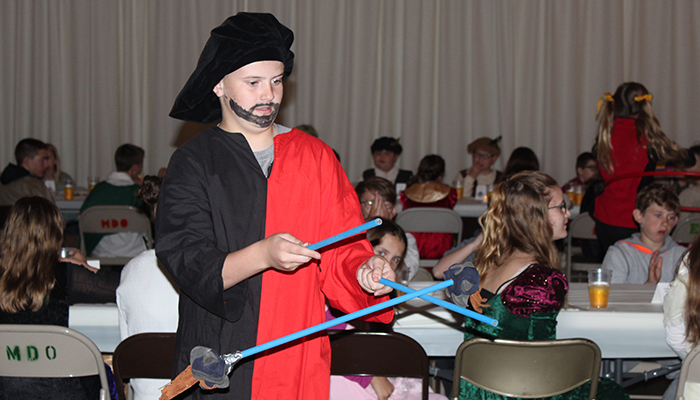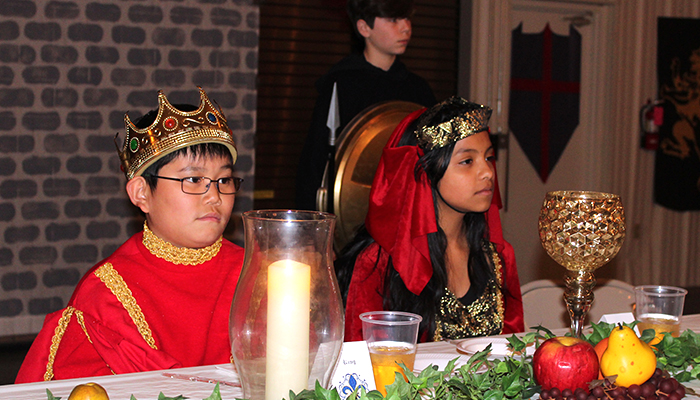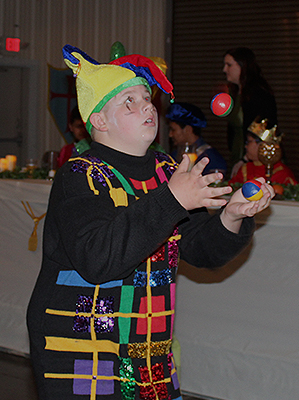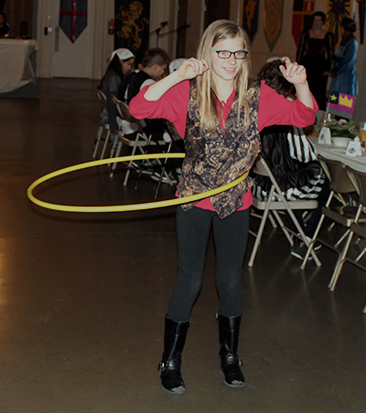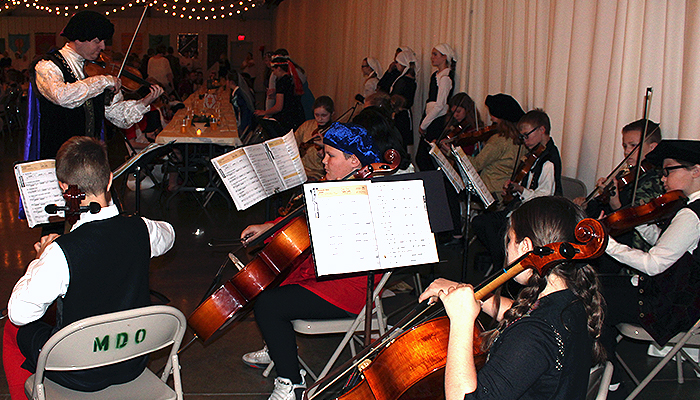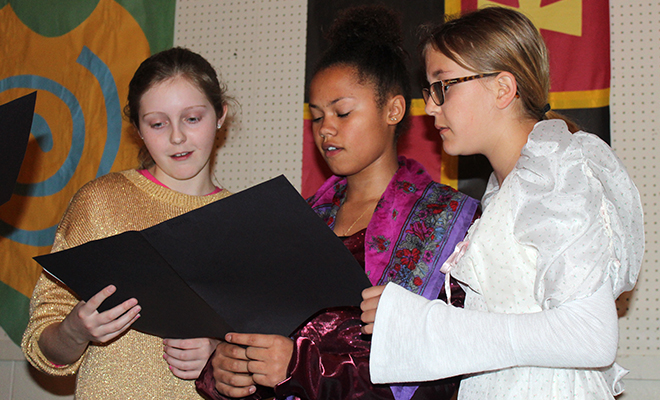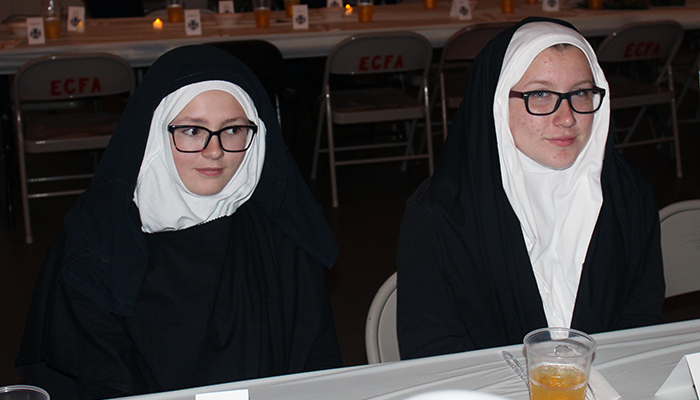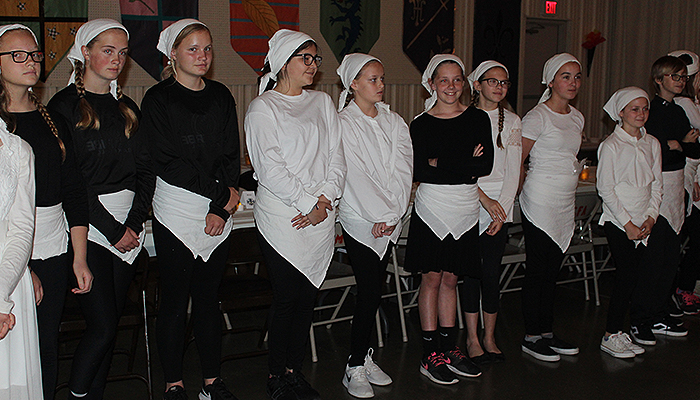By CRISTINA JANNEY
Hays Post
Hays Middle School sixth-graders donned royal robes, knight’s swords and peasant’s rags for the school’s Medieval Feast on Thursday.
The feast is a role-playing dinner that wraps up the students’ studies of Medieval history.
All of the students picked a role to play from a hat. There was a king and queen, their court, knights, ladies in waiting, nuns and priests, a herald, jesters, orchestra musicians, butlers, guards, cooks, scullions and peasants.
Each child dressed according to their station in life and were seated according to that station in the great hall at the Ellis County Fairgrounds. They had to research what a person in their social class would wear and were responsible for putting together costumes for their characters.
Students with the help of parent volunteers prepared plates of cheese, apples and grapes, bread, rice, chicken and ham. For dessert, they ended with sweet raspberry treats with strawberries and a treat that the Gella’s chef helped create.
Marilyn Engel, English teacher, helped organize the event.
“We explained to them that you were born into a station in life that you were stuck in,” she said.
The students who portrayed the beggar peasants had to beg at the door to be let into the feast. They talked about being in the lowest class.
Student Lex Lummus said being a peasant didn’t feel very good.
“If you are a higher class, you have more money and more stuff to do, and (as a peasant) probably don’t have a house or money,” he said.
Student Cooper Sanders chimed in saying the peasants probably didn’t have much to eat.
On the opposite end of the spectrum, Derek Quach portrayed the king and Joanna Mendoza the queen.
The students learned that as royals they were allowed to wear clothing the others could not including purple robes. Purple dyes are very difficult to produce from natural substances and as a result were very rare in the ancient world.
Another group of students were ladies in waiting, who are charged with assisting the queen. Student Kassie Donann pointed out some of the different customs of the Medieval Age, such as dipping your hands in water at the table before you ate and the custom of blood letting to cure diseases.
“It was kind of gross and looked painful,” she said of the blood letting.
Engel said the activity helps solidify what the students have learned.
“We don’t do this every year, but we have done this for a long time. The kids that did it years and years ago still remember this day. They still remember what their role was. I’ll be in the check out line in Dillons and somebody will bring up, ‘Remember when I was a cook in the madrigal? Cooks rock!’ Some of the teachers who I teach with now were ladies in waiting when they were sixth graders, and they still remember it. I have parents who come and say they still remember the role and this day. This live role-playing really does solidify it in their minds.”
Parent volunteers were essential in puling off the event, Engel said. They helped decorate, cook and prepare the students in their costumes.
“It is a fun day for the kids,” Engel said. “They are going to remember this for a long time.”
